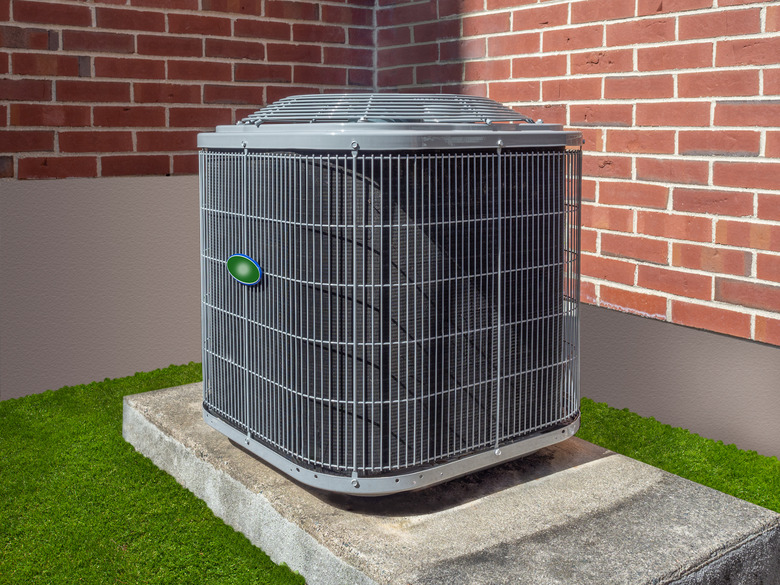How To Repair A Frozen Central Air Conditioning Unit
We may receive a commission on purchases made from links.
Although difficult to fathom when it's sweltering outside, freezing is the most common problem that homeowners experience with central air conditioning units. It's easy to thaw the unit if it freezes, but the job isn't done when the ice melts.
You'll need to take a few simple steps to make sure the unit doesn't freeze again. Running a frozen unit wreaks havoc on its AC compressor, which is the most expensive part of the unit. This makes it important to understand the cause of your frozen AC so you can avoid more problems in the future.
Thaw the Unit
Thaw the Unit
If your air conditioner freezes, your first step is to thaw it. Doing so is a simple matter of going to the thermostat and turning off the unit completely. Give the air conditioner a full 24 hours to defrost and then run only the fan for a few hours to dry things out.
Some HVAC technicians feel that the AC will thaw more quickly if you turn the air conditioning off but run the unit on the fan-only setting. This method is also acceptable and may work best if you or a pet must stay in the house while the air conditioning is off. Doing so won't cool the air in your home, but it will keep it moving.
Why Freezing Happens
Why Freezing Happens
While you're waiting for your air conditioner to thaw, you may want to take some time to learn why it froze in the first place. It's counterintuitive that an air conditioner would form ice in the middle of a hot summer, but it makes sense when you understand what happens inside your appliance.
To cool the air, refrigerant runs through the coils inside your air conditioning unit and in doing so makes them very cold. Hot air from outside flows over these cold coils. As it does so, the air itself is cooled, and the coils are warmed a bit by the hot air. When all is going well, this hot and cold air exchange occurs in a perfect balance.
If, however, the airflow through the air conditioner is blocked or slowed, the coils don't get enough warm air to keep them from freezing. The refrigerant inside them will make them so cold that ice crystals will start to form, eventually building up on the coils. Frozen units must work much harder to deliver cold air and can reach a point where they fail to generate any at all. In extreme cases, you can easily see the ice on the air conditioner.
Preventing Future Problems
Preventing Future Problems
Now that you know how it's possible for an air conditioner to freeze, you've probably figured out that restricted airflow is the root of most freezing problems. To prevent future issues with your unit, begin by changing your air filter. Next, check your cold air return and verify that it's not blocked by a piece of furniture or lots of dust bunnies.
It's also a good idea to make sure all the air conditioner vents in your home are open. People often close vents in rooms they don't use to try to save money, but your AC unit is designed to cool a certain amount of space. Closing vents can limit airflow and make your air conditioner work harder, ultimately costing you money rather than saving it.
If you feel comfortable doing so, you can also clean both the indoor evaporator coil and outdoor condensing coils on your air conditioner. Both are delicate, so clean them only with a soft brush or a can of condensed air. You can also hit your outdoor coils with a garden hose but keep the water pressure fairly low. Don't blast the coils with a power washer.
Calling a Pro
Calling a Pro
While you're troubleshooting, take a look at any exposed HVAC ductwork in your home. Severely dented ducts can reduce airflow, as can holes in the ductwork or misaligned seams. You may be able to fix some minor issues yourself, but bigger problems will require an HVAC pro.
You'll also want a pro if your troubleshooting and quick fixes don't do the job. If your AC unit ices up again after you've checked for and resolved airflow problems, it's time to call for backup. It's possible that your air conditioner is leaking coolant or suffering from a weak blower motor. These problems are best handled by a trained technician.
